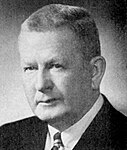
William Fife Knowland was an American politician and newspaper publisher. A member of the Republican Party, he served as a United States Senator from California from 1945 to 1959. He was Senate Majority Leader from August 1953 to January 1955 after the death of Robert A. Taft, and would be the last Republican Senate Majority Leader until Howard Baker in 1981.
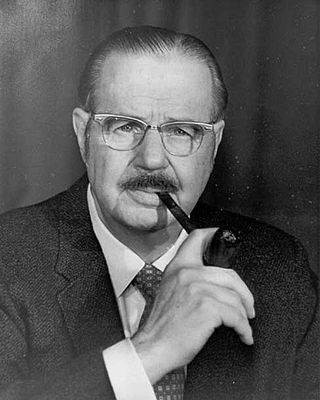
Hugh Doggett Scott Jr. was an American politician. A member of the Republican Party, he represented Pennsylvania in the U.S. House of Representatives from 1941 to 1945 and from 1947 to 1959 and in the U.S. Senate, from 1959 to 1977. He served as Senate Minority Leader from 1969 to 1977.

Joseph Sill Clark Jr. was an American writer, lawyer and politician. A member of the Democratic Party, he served as the 90th Mayor of Philadelphia from 1952 to 1956 and as a United States Senator from Pennsylvania from 1957 to 1969. Clark was the only Unitarian Universalist elected to a major office in Pennsylvania in the modern era.

The 1988 United States Senate elections were elections for the United States Senate. Held on November 8, 1988, the 33 seats of Class 1 were contested in regular elections. In spite of the Republican victory by George H. W. Bush in the presidential election, the Democrats gained a net of 1 seat in the Senate. 7 seats changed parties, with 4 incumbents being defeated. The Democratic majority in the Senate increased by one to 55–45.

The 1980 United States Senate elections were held on November 4, coinciding with Ronald Reagan's victory in the presidential election. The 34 Senate seats of Class 3 were contested in regular elections. Reagan's large margin of victory over incumbent Jimmy Carter gave a huge boost to Republican Senate candidates, allowing them to flip 12 Democratic seats and win control of the chamber for the first time since the end of the 83rd Congress in January 1955. This was the first time since 1966 that any party successfully defended all their own seats.

The 1976 United States Senate elections was an election for the United States Senate. Held on November 2, the 33 seats of Class 1 were contested in regular elections. They coincided with Democrat Jimmy Carter's presidential election and the United States Bicentennial celebration. Although almost half of the seats decided in this election changed parties, Carter's narrow victory did not provide coattails for the Democratic Party. Each party flipped seven Senate seats, although, one of the seats flipped by Democrats was previously held by a Conservative.

Richard Schultz Schweiker was an American businessman and politician. A member of the Republican Party, he served as the 14th U.S. Secretary of Health and Human Services under President Ronald Reagan from 1981 to 1983. He previously served as a U.S. Representative (1961–1969) and a U.S. Senator (1969–1981) from Pennsylvania. In 1976, Schweiker was Reagan's running mate during his unsuccessful presidential campaign. He was not related to Pennsylvania governor Mark Schweiker.

The 1968 United States Senate elections were elections for the United States Senate. Held on November 5, the 34 seats of Class 3 were contested in regular elections. They coincided with the presidential election of the same year. The Republicans picked up five net seats in the Senate. This saw Republicans win a Senate seat in Florida for the first time since Reconstruction.
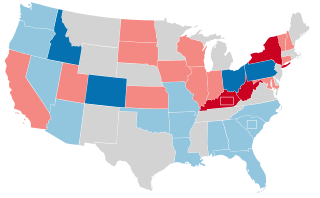
The 1956 United States Senate elections were elections for the United States Senate that coincided with the re-election of President Dwight D. Eisenhower. The 32 seats of Class 3 were contested in regular elections, and three special elections were held to fill vacancies. Although Democrats gained two seats in regular elections, the Republicans gained two seats in special elections, leaving the party balance of the chamber unchanged.
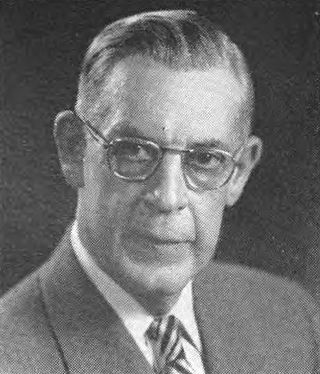
Benjamin Franklin James was an American politician from Pennsylvania who served as a Republican member of the U.S. House of Representatives for Pennsylvania's 7th congressional district from 1949 to 1959. He served as a member of the Pennsylvania House of Representatives for Delaware County from 1939 to 1947.

The 1952 United States Senate election in Massachusetts was held on November 4, 1952, in which Incumbent Republican Henry Cabot Lodge Jr. lost to Congressman and future President John F. Kennedy, the Democratic Party nominee.

The United States Senate election of 1956 in New York was held on November 6, 1956. Incumbent Senator Herbert H. Lehman retired after one full term in the Senate. Republican Attorney General of New York Jacob K. Javits defeated Mayor of New York City Robert F. Wagner Jr. to win the open seat.

The 1980 United States Senate election in Pennsylvania was held on November 4, 1980. Incumbent Republican U.S. Senator Richard Schweiker decided to retire, instead of seeking a third term.

The 2012 United States Senate election in Pennsylvania was held on November 6, 2012, alongside a presidential election, other elections to the United States Senate in other states, as well as elections to the United States House of Representatives and various state and local elections. Incumbent Democratic U.S. Senator Bob Casey, Jr. ran for and won re-election to a second term, defeating Republican nominee Tom Smith, and Libertarian nominee Rayburn Smith.
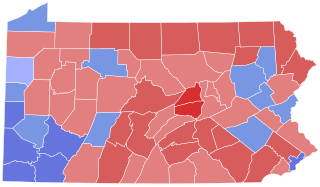
The 1962 United States Senate election in Pennsylvania was held on November 6, 1962. Incumbent Democratic U.S. Senator Joseph S. Clark, Jr. successfully sought re-election to another term, defeating Republican nominee James E. Van Zandt.
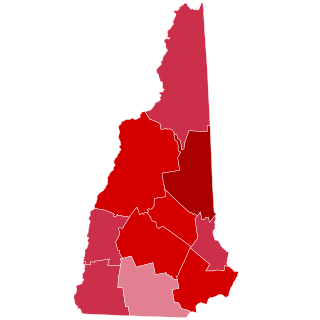
The 1956 United States presidential election in New Hampshire took place on November 6, 1956, as part of the 1956 United States presidential election, which was held throughout all contemporary 48 states. Voters chose four representatives, or electors to the Electoral College, who voted for president and vice president.

The 1955 Philadelphia municipal election, held on Tuesday, November 8, involved contests for mayor, district attorney, all seventeen city council seats, among other offices. Citywide, the Democrats took majorities of over 130,000 votes, continuing their success from the elections four years earlier. Richardson Dilworth, who had been elected district attorney in 1951, was elected mayor. Victor H. Blanc, a city councilman, was elected district attorney. The Democrats also kept fourteen of seventeen city council seats, losing one district seat while gaining another, and kept control of the other citywide offices. The election represented a further consolidation of control by the Democrats after their citywide victories of four years earlier.

The 1956 United States presidential election in Minnesota took place on November 6, 1956, as part of the 1956 United States presidential election. Voters chose 11 electors, or representatives to the Electoral College, who voted for president and vice president.

1959 Philadelphia's municipal election, held on November 3, involved contests for mayor, all seventeen city council seats, and several other executive and judicial offices. Citywide, the Democrats took majorities of over 200,000 votes, continuing their success from the elections four years earlier. Richardson Dilworth, who had been elected mayor in 1955, was re-elected over Republican nominee Harold Stassen. The Democrats also took fifteen of seventeen city council seats, the most seats allowed to any one party under the 1951 city charter. They further kept control of the other citywide offices. The election represented a continued consolidation of control by the Democrats after their citywide victories of the previous eight years.


